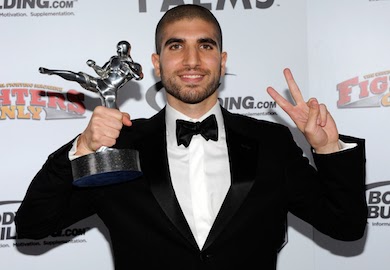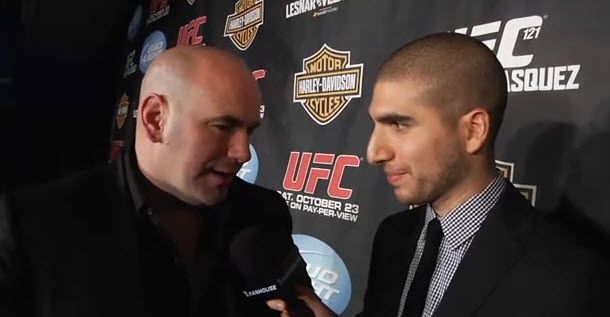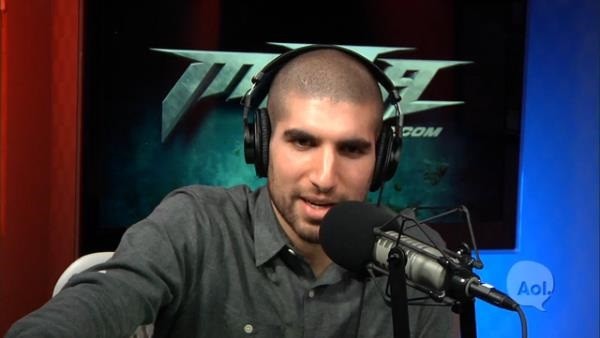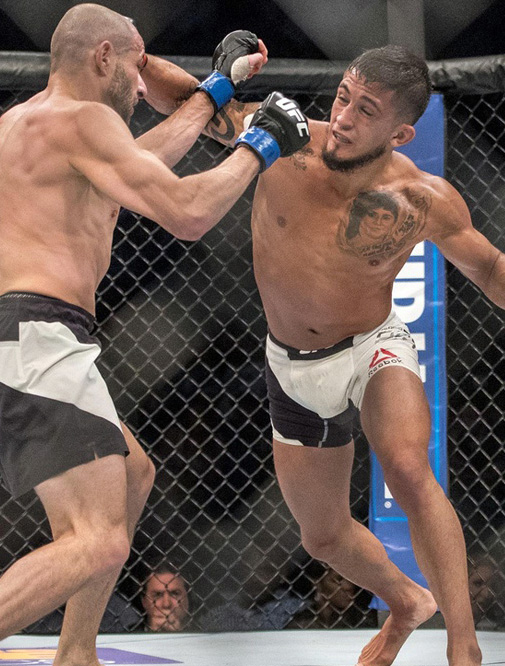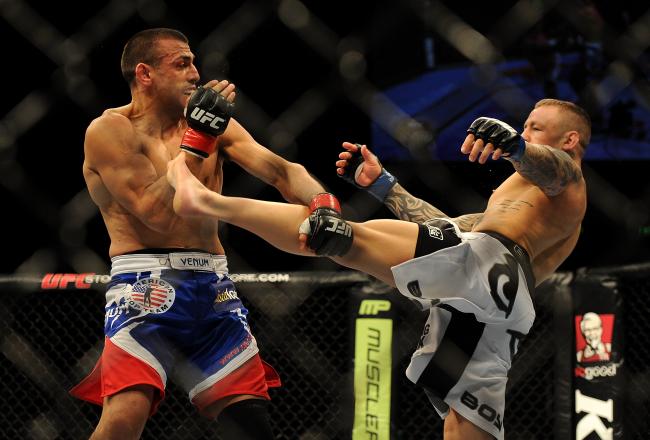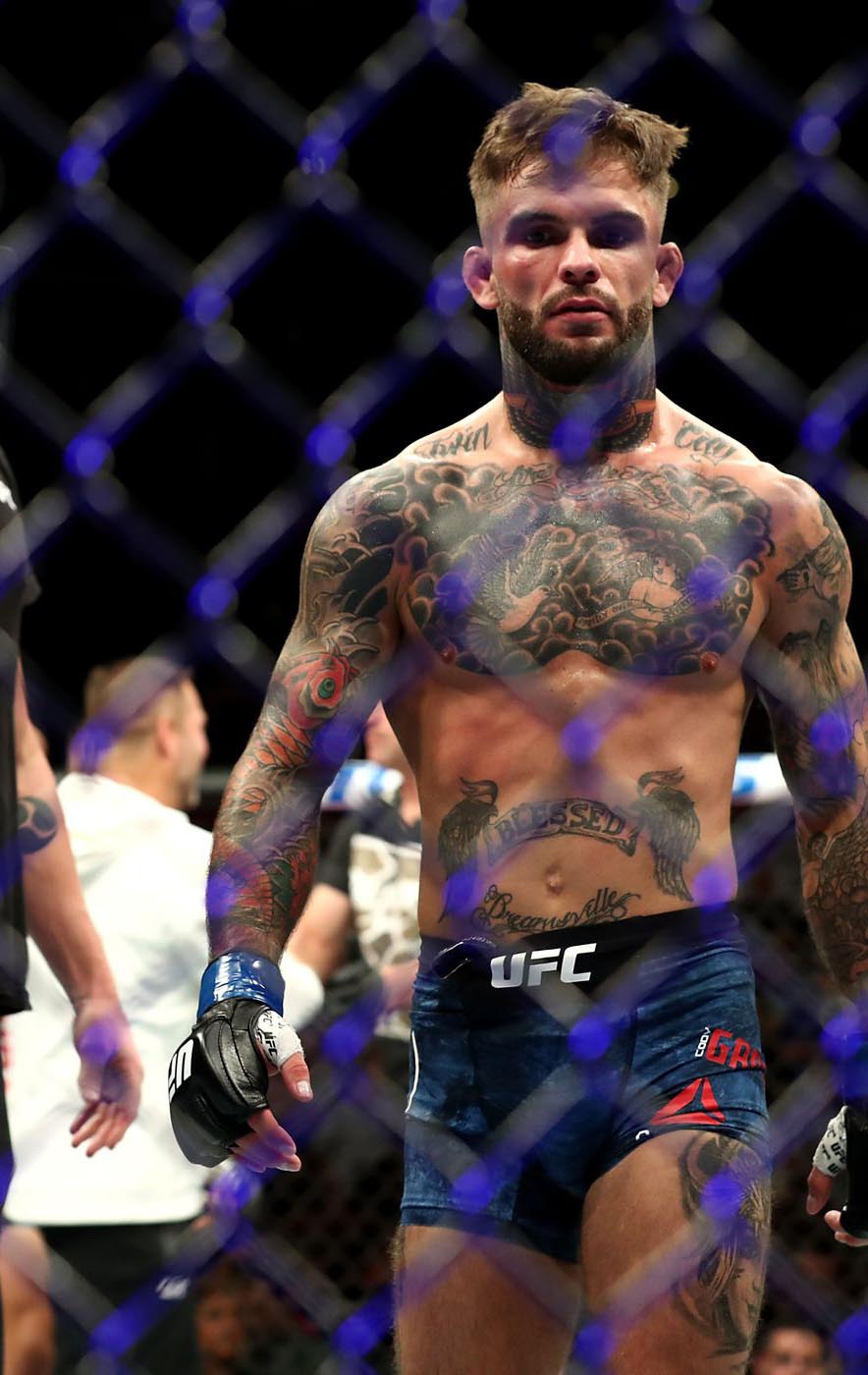An event like UFC 199 should never be overshadowed. After impressive victories by the likes of Michael Bisping, Dominick Cruz, Max Holloway, and many others, there should have been an air of excitement leaving The Forum in Inglewood, California. The major media stories should have featured the stars of the night that battled it out in the Octagon, or even the return of Brock Lesnar. Instead, much of the mixed martial arts press focused on the compelling and troubling story surrounding Ariel Helwani and his mistreatment by the UFC.
Late Saturday night, Helwani took to his Twitter account to reveal that he, Esther Lin, and E. Casey Leydon were removed from the venue after Helwani broke the story about Lesnar’s imminent UFC return. Helwani also mentioned that the media credentials for all three were denied “for life.” The response was an outcry of support for Helwani from fans, fighters, and media members alike. Other reporters asked UFC representative Dave Sholler for a response to Helwani’s accusations during the post-fight press conference, but received a standard “No comment” as an answer.
On Monday afternoon during his show “The MMA Hour,” Helwani spent nearly two hours chronicling not only the situation from UFC 199 but his interactions with the UFC as he rose to become perhaps the most prominent reporter covering mixed martial arts. Helwani spoke of various examples of mistreatment, and even one situation that evolved into a physical altercation, all while covering what is widely considered to be the fastest growing mainstream sport in the world. After many emotional and engaging moments, Helwani ended the show committed to his position as a writer, but unsure of what his future truly would be.
Thankfully, cooler heads would prevail, as the UFC restored each reporter’s credentials on Tuesday, potentially closing the book on this intriguing look into the company’s relationship with the media. But media members and the fighters they cover shouldn’t allow this to be the end of the story.
A UFC media credential is a valuable thing. As with other sports, a media credential isn’t a right – instead it’s a privilege bestowed on the individuals with the proven skill and experience to properly cover said sport. Although a UFC credential allows key coverage of the sport and its athletes, it should not be used as a weapon against people within the media. It should not be wielded as a way to “control” what some individuals write about or hinder their ability to uncover information that the promotion wants to reveal at a later date. As with every other sport, and journalism as a whole, reporters work their sources, do their research, and gain knowledge of behind the scenes info through mostly honest discourse. In fact, Helwani’s activities typically equated to free publicity for the UFC, as he covered the promotion from so many different angles.
Within MMA circles, the UFC is known for a less than stellar record when it comes to professional treatment of the media that covers the sport. Examples include the banning of reporters from Sherdog (who eventually regained their credentials) and Josh Gross (who hasn’t), as well as UFC President Dana White’s rant against Loretta Hunt. While those stories went without much mainstream coverage, Helwani’s presence on Fox Sports 1 created a storm which the UFC would not be able to just walk away from. Although many other media professionals that cover MMA spoke out about their treatment, it was when Rachel Nichols spoke out that pushed this story into the mainstream.
“Those of you spending your dollars on UFC should be concerned. I’m not pretending sportswriters are producing the Pentagon Papers here,” Nichols said via her Twitter account. “But sport is a central part of American life … if you create a system where the only people who are allowed to cover a sport are people who do or say exactly what the league wants them to, then you don’t have a media who can question things when they go off the rails. And as we’ve seen … they do sometimes.”
At that moment, the UFC was in a position that risked the credibility of its status among mainstream sports. Other big name officials such as Roger Goodell, Bud Selig, David Stern, and others have experienced their “issues” with the media members reporting on their sport. But the way White and others within the UFC behaved was far from professional. Helwani’s discourse and the outcry of support for him revealed as much, forcing the UFC to take a step back from its “ban.” Even though the promotion admitted no wrongdoing inits release, it was clear that it was in the wrong from the start.
Helwani is one of the most important media professionals covering mixed martial arts. Not only is he a credible reporter, but his love for the sport flows out every time he talks about it. The UFC’s attempt to pressure him should not be ignored by the rest of the press, by the fans who watch, or by the fighters who compete. In a sense, the three groups need each other, and the outpouring of support for Helwani, Lin and Leydon proved that point.
**********

UFC 199: Rockhold vs. Bisping 2 (formerly UFC 199: Rockhold vs. Weidman 2) took place on June 4, 2016 at The Forum in Inglewood, California.
Click the stars to rate how good you think UFC 199 was.

